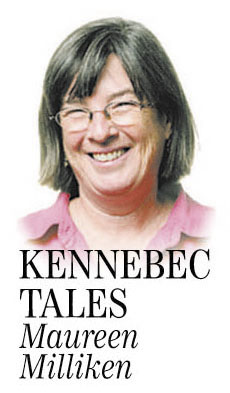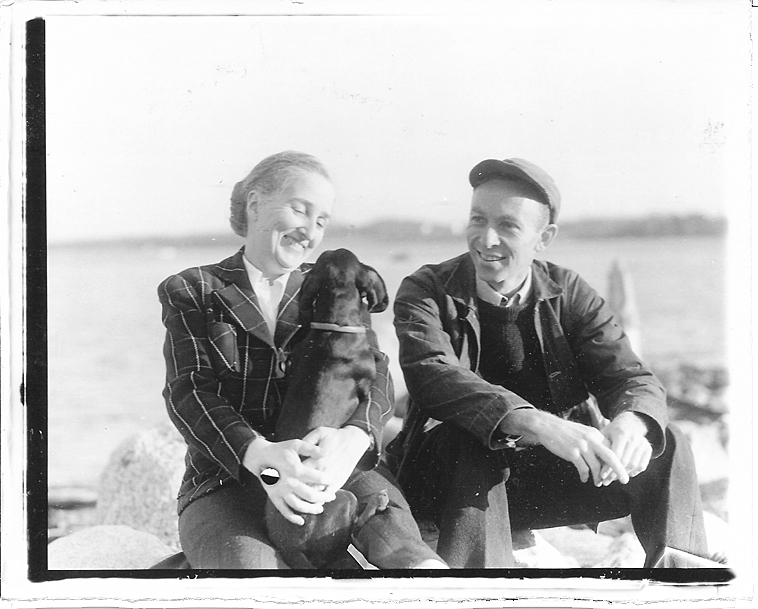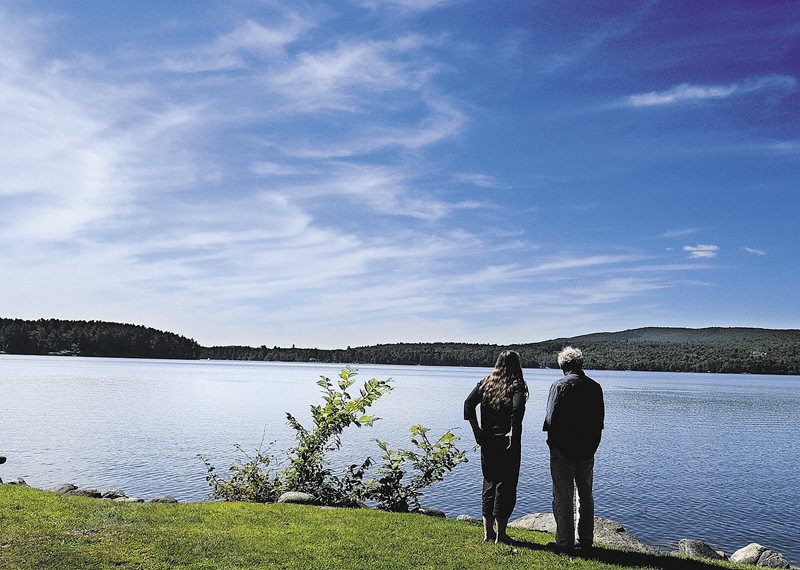It’s hard to believe when you’re digging out the car for the 37th time or trying to sweep the latest pound of salt and sand from the kitchen floor that summer is ever going to come.
But it does. Friday is the first day — the calendar and almanac both say so.
And when it comes where we live, it comes spectacularly.
The writer E.B. White said it best, “Summertime, oh summertime, pattern of life indelible, the fade-proof lake, the woods unshatterable, the pasture with the sweetfern and the juniper forever and ever, summer without end.”
That line, from his essay “Once More to the Lake,” would stir a passion for summer no matter where you call home. But if you live in central Maine, you say, “Exactly.”
There’s a good reason for that. White wrote the essay in 1940, when he was visiting Great Pond in Belgrade with his son. White had been coming to Belgrade from New York since 1904, when he was 5 years old. After a long absence, many of his childhood memories of his time on the lake still held up.
Some 63 years later much of it still holds up.
White wasn’t from Maine, but like many from away he fell in love with it early and made it his own. By the time he wrote “Once More to the Lake,” he was living on his salt-water farm in North Brooklin, on the Blue Hill Peninsula. That’s not only where he wrote most of his great essays and letters, but also where he wrote “Charlotte’s Web.”
White’s granddaughter, Martha White, will be at the Maine State Library in Augusta Friday talking about her grandfather and the latest collection of his essays, “E.B. White on Dogs,” published recently by Tilbury Press in Gardiner.
A few years ago, while compiling her grandfather’s letters and essays for the book “In the Words of E.B. White,” White realized he’d written a lot about dogs. And from that came “E.B. White on Dogs.”
Her grandfather had a lot of dogs “and he loved them all,” she said this week by phone from her home on the Maine coast. “He wrote very funny pieces about them, very light-hearted and amusing.”
He had the talent of putting thoughts in animals’ heads without making them overly cute or cloying. Think “Charlotte’s Web.”
White cites one essay in which her grandfather wrote a letter to her grandmother, Katharine, who was pregnant. The letter was “from” their dog Daisy, a Scottie. Daisy wrote about how happy E.B. was that he was going to be a father.
Her grandfather had the dog say things he couldn’t say himself, White said.
Sometimes when people use animals that way “it’s sappy or melodramatic or sickly sweet,” White said. “My grandfather didn’t do that, he had too much respect for them.”
He also didn’t do it because he was a beautiful and elegant writer who could capture nuance and detail and put it together in a way few other writers can.
Martha White said her grandfather would be embarrassed that he’d become a sort-of celebrity. He was a private and humble man.
At his funeral, a friend said, “If he could have been here today, he wouldn’t have been here.”
She said the same goes for her book tour events.
There’s an ongoing issue in North Brooklin with fans of “Charlotte’s Web,” or just plain fans, showing up at the farm, which is now owned by someone else. It’s become kind of a Graceland for the literary set.
When people are moved by a writer’s work, they often feel like they know the person, that he’s their friend.
They believe there’s a connection there that the writer would understand. Problem is, lots and lots of people feel that way.
White said people often ask if they can tour the house or barn in North Brooklin. The answer is no.
“My grandfather expressly asked that it not be used as any sort of ‘museum’ or site for pilgrimages, so I always tell people that if they want to find (White), they should read his books,” White said.
She said if people feel they have to do more to honor his memory, they should “adopt a dog, build a chicken coop, go for a canoe paddle on a quiet lake, or write a letter to an editor or politician on an issue that concerns them, especially for the preservation of our wildlife or the environment.”
White may have lived on the coast, but he returned to the Lakes, “this holy spot” as he called it, throughout his life.
Those of us who love this area, too, feel that same connection with White. He got it the way we get it.
Some of us are lucky enough to live here.
Others spend 11 months dreaming about it, then on one of those bright high-definition green and blue Maine summer days finally get to bump down a dirt road, through the juniper and sweetfern to the fade-proof lake.
There’s no better way to emulate E.B White if you’re one of the lucky ones than to turn off the computer and iPhone, close down the Facebook, the Twitter and the texting. Take your eyes off the screen and rest them on the lake, let out that breath you’ve been holding and relax.
In “Once More to the Lake,” White writes that so much is the same as when he came as a boy that he keeps seeing himself as his father and his boy as him.
In 2013, yes there have been changes, but sit on the porch among the pines and think about how much is still the same.
As White wrote, “those times and those summers had been infinitely precious and worth saving.”
In this holy spot, they still are.
Maureen Milliken is news editor of the Kennebec Journal and Morning Sentinel. She lives in Belgrade Lakes. Email her at mmilliken@mainetoday.com. Kennebec Tales appears the first and third Thursday of the month.
Send questions/comments to the editors.





Success. Please wait for the page to reload. If the page does not reload within 5 seconds, please refresh the page.
Enter your email and password to access comments.
Hi, to comment on stories you must . This profile is in addition to your subscription and website login.
Already have a commenting profile? .
Invalid username/password.
Please check your email to confirm and complete your registration.
Only subscribers are eligible to post comments. Please subscribe or login first for digital access. Here’s why.
Use the form below to reset your password. When you've submitted your account email, we will send an email with a reset code.